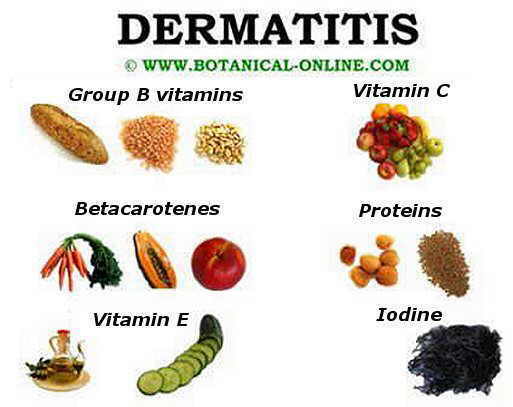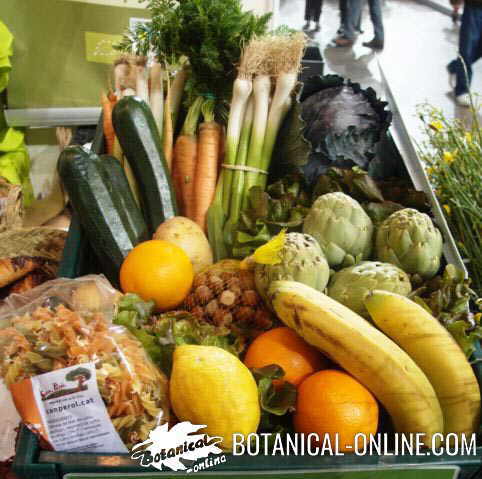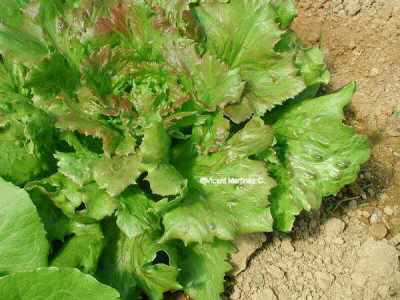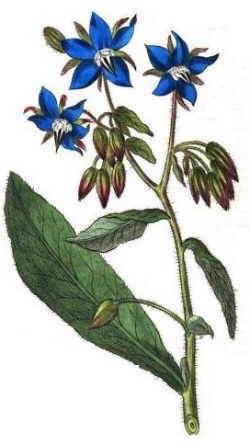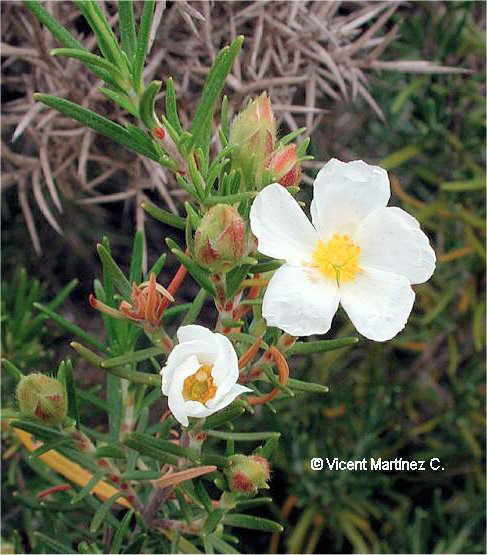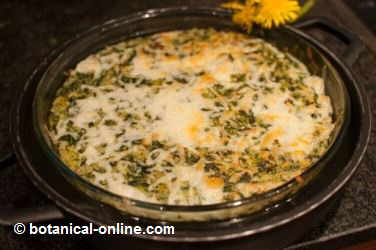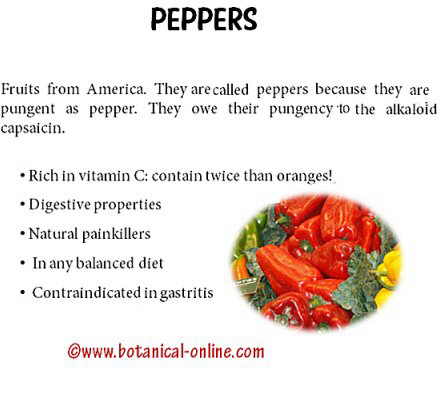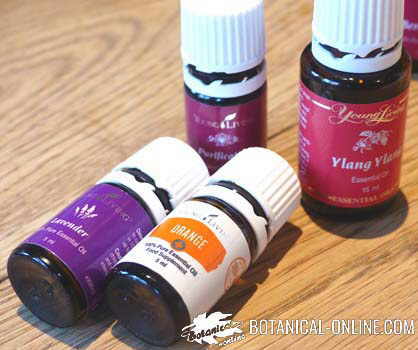Contents
- 1 What is vitamin E?
- 1.1 Vitamin E characteristics
- 1.2 Main curative properties of vitamin E
- 1.3 Vitamin for fertility and pregnancy
- 1.4 DAILY NEEDS OF VITAMIN E
- 1.5 Recommended daily amount of vitamin E
- 1.6 Dangers of vitamin E and cancer
- 1.7 When do you specially need vitamin E?
- 1.8 WHAT FOODS CONTAIN VITAMIN E
- 1.9 Animal sources of vitamin E
- 1.10 Vegetable sources of vitamin E
- 1.11 How it is better to store oils and nuts to preserve their vitamin E
- 1.12 Supplements of vitamin E
- 1.13 DO NOT TAKE SUPPLEMENTS IF NOT NECESSARY
- 1.14 How to take and preserve vitamin E
- 1.15 Symptoms of deficiency or lack of vitamin E
What is vitamin E?
Vitamin E characteristics
Vitamin E is a set of different soluble components divided into two groups.
The group that most stands out is that of the tocopherols that has 4 members: alpha tocopherol, beta tocopherol, gamma tocopherol and delta tocopherol, the first being the best known and which seems to be more active.
Vitamin E is considered the heart vitamin, since it is necessary to have vitamin E needs covered for a healthy heart. Good levels of this vitamin would help prevent the onset of heart disease, arteriosclerosis or certain types of cancer.
The reason lies in its ability to protect the membranes of cells which prevents free radicals from oxidising, which would lead to a degradation of the human body, especially in the aspects of heart disease or possible cancers.
It’s a vitamin, which along with vitamin A and vitamin C, form the group of antioxidant vitamins.
Main curative properties of vitamin E
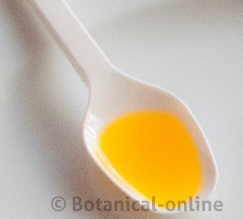 Wheat germ oil of cold pressure is the food richest in vitamin E. 1 teaspoon provides all the necessary vitamin E per day
Wheat germ oil of cold pressure is the food richest in vitamin E. 1 teaspoon provides all the necessary vitamin E per day
Vitamin for fertility and pregnancy
Another of the properties of this vitamin is its role in pregnancy. In fact, the name of vitamin E, tocopherol, derives from the Greek toco (= birth) and phereon (= carry out). Because this vitamin is necessary for the pregnancy to develop successfully.
In the body, vitamin E circulates together with the good HDL cholesterol.
DAILY NEEDS OF VITAMIN E
Recommended daily amount of vitamin E
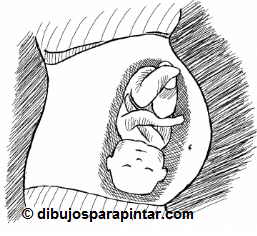 The needs increase in pregnancy. Drawing courtesy of: ©Dibujosparapintar
The needs increase in pregnancy. Drawing courtesy of: ©Dibujosparapintar
The necessary daily doses of this vitamin (RDA) for adults are 11-15 mg of vitamin E (alpha-tocopherol) (or its equivalent to 22.5 IU) daily.
First-pressing cold-pressed wheat germ oil is recommended as a natural vitamin E supplement.
Dangers of vitamin E and cancer
Some experts recommended high doses of this vitamin to have a greater therapeutic effect, but it has been observed that these doses are not recommended.
High doses of vitamin E supplements are contraindicated in all cases. Studies show that taking more than 400 IU increases the risk of mortality and cancer (the equivalent of 268mg of vitamin E or higher).
When do you specially need vitamin E?
The situations in which one should possibly take supplements of vitamin E because there may be a deficiency of it would be the following:
- Liver problems that prevent proper absorption of this vitamin. (Cirrhosis, hepatitis, fat liver, etc)
- Slimming regimes or low-fat vegan diet in which there is low consumption of vegetable fats. (This vitamin is fat soluble and the body needs fat to absorb it)
- Intestinal diseases that prevent absorption of the vitamin. (Leaky bowel, Crohn, colitis, etc)
- Some medications such as antacids and those used to lower cholesterol.
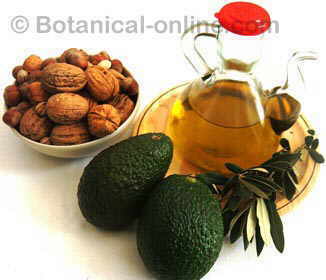 Foods rich in vegetable oils are the richest foods richest in vitamin E
Foods rich in vegetable oils are the richest foods richest in vitamin E
WHAT FOODS CONTAIN VITAMIN E
Animal sources of vitamin E
The amounts of vitamin E in the sources of animal origin are so low that they do not have any use to achieve the needs of this vitamin.
Only fatty fish (oily fish such as salmon, tuna, sardines, etc.) and seafood (squid, prawns, prawns) deserve mention. Eggs also provide a certain amount of vitamin E.
Viscera, red meat, white meat, white fish, and especially dairy products, are very poor in vitamin E.
Vegetable sources of vitamin E
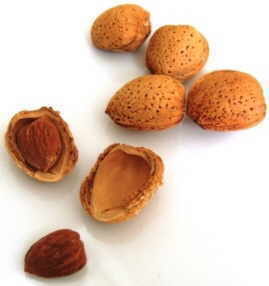 Almonds are very rich in vitamin E (without frying, without salt)
Almonds are very rich in vitamin E (without frying, without salt)
It should be qualified that only high-pressure cold oils contain a lot of vitamin E. Refined oils have very little vitamin E (and for this reason they easily become rancid).
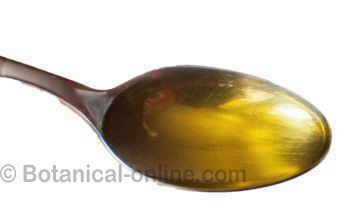 One teaspoon of virgin olive oil contains 2 mg of tocopherols. The CDR is about 10-15mg
One teaspoon of virgin olive oil contains 2 mg of tocopherols. The CDR is about 10-15mg
Wheat germ oil is the food richest in vitamin E (only the first cold pressure) (149 mg per 100 g).
They also contribute a good amount of this vitamin to the unrefined sunflower oil (40 mg per 100g).
The seeds and nuts richest in vitamin E are: sunflower seeds (without frying) (35 mg per 100g) and almonds (not fried) (25 mg per 100g).
Avocado (6 mg per piece of 200g) and the mangoes, peaches and apricots (1 mg per 100g) also contain this vitamin.
Other plant sources have lesser amounts, such as apples (1.6 mg / mz) or asparagus (0.4 mg per two stems). Many other vegetables have vitamin E but in quantities too small to be worth naming.
How it is better to store oils and nuts to preserve their vitamin EVitamin E is sensitive to light and heat, so oils and nuts should be kept in an opaque container and in a cold place. In this way, food retains all its vitamin. Frying the oils or leaving them uncovered causes your vitamin E to decrease dramatically. |
Supplements of vitamin E
- Wheat germ of first cold pressure: 1 teaspoon every morning with a glass of water with squeezed lemon.
- Alphatocopherol succinate: In the form of tablets or capsules in which vitamin E is mixed with succinate to prevent it from becoming rancid in contact with air.
- Alphatocopherol acetate: In the form of pearls in which vitamin E is mixed with acetate to prevent it from becoming rancid in contact with air.
- Mixed tocopherols: In which all the forms obtained through distillation of vegetable fatty fruits are combined. They are more suitable for the organism than the previous forms.
- Natural Vitamin E (alphatocopherol): supplements obtained mainly from soybean or safflower oil. They are used when there are problems of heartburn.E.
DO NOT TAKE SUPPLEMENTS IF NOT NECESSARYIt is not recommended to consume any of the aforementioned supplements daily without the advice of a professional. Taking vitamin E supplements can be counterproductive in certain situations or in amounts greater than 400 IU daily. (equivalent to 286 mg of vitamin E) |
How to take and preserve vitamin E
- Vitamin E is best absorbed if we consume fat.
- It is more appropriate to take vitamin E supplements during meals.
- The combination of vitamin E and selenium makes you get better result and for longer terms.
- Bottles of vitamin E supplements should be kept in a cool place and protected from light. If the temperature is so low that comes close to freezing, it gets damaged. Do not keep this vitamin in the freezer or refrigerator.
Symptoms of deficiency or lack of vitamin E
A lack of this vitamin manifests itself mainly:
- Circulatory and cardiac problems: As a bad circulation in general or a bad heart functioning, anemia, hemorrhages, arteriosclerosis, bad circulation
- Skin problems: A skin lacking vigor and freshness or when the wounds cost a lot to heal, may indicate a deficiency of vitamin E.
- Nervous system problems: irritability, depression, pessimism, loss of reflexes, speech difficulty.
- Problems of memory and learning: such as problems of concentration, memory, learning problems, mental fatigue, etc.
- Muscle problems: weakness, low sports performance, microinjuries
- Problems of sterility: infertility, abortion, problems in the testicles, etc. The lack of fertility may be due to a deficiency of vitamin E.
![]() More information on vitamin E
More information on vitamin E

